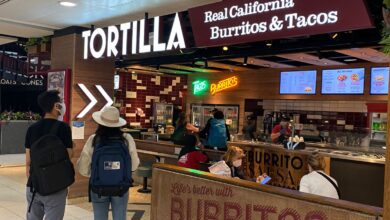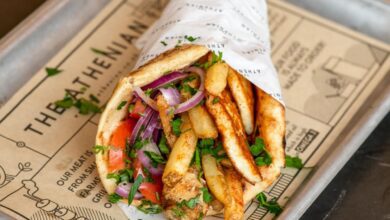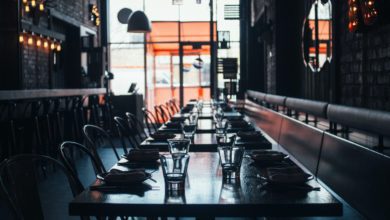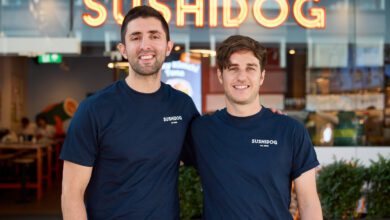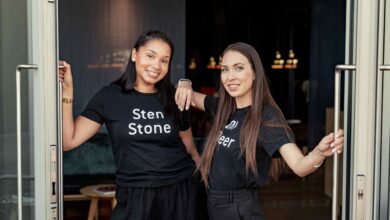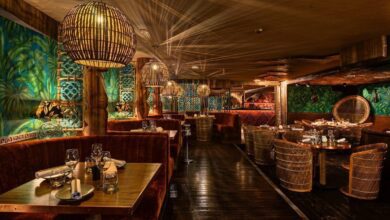The chef behind Canary Wharf’s own French Riviera superyacht
Mike Reid, the executive chef behind the M Canary Wharf concept, delves into his childhood love for good food, the rarity of ‘make it from scratch’ restaurant habits, and making luxury accessible to all who love food
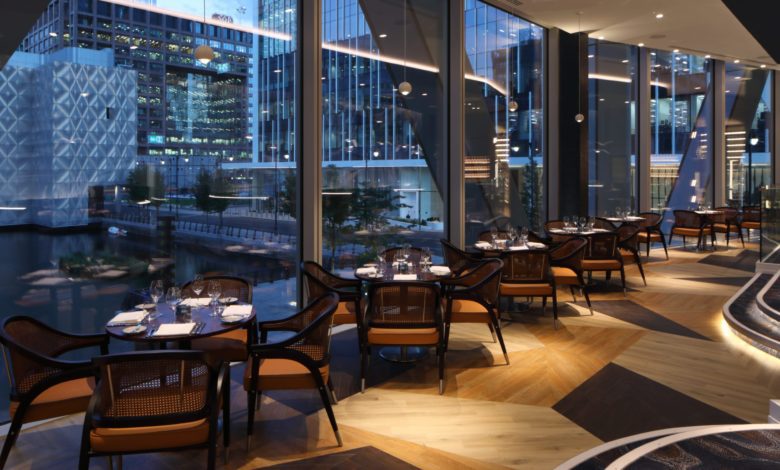
Register to get 1 more free article
Reveal the article below by registering for our email newsletter.
Want unlimited access? View Plans
Already have an account? Sign in
Can you tell us about your background and what inspired you to become a chef?
I remember when I was about 19 during my second year of uni I got my first cheffing job to help pay my way through university, but as soon as I walked into the kitchen, I realised it was what I was meant to do. Once I graduated, I came back to London to do a modern day apprenticeship, and my career just went on from there with some of London’s best restaurants.
It was something that I was always interested in; I had a love of food from a very young age. One of my earliest memories is being five-years-old and talking to my mom about sauces and how to bring dishes together. It was just always something that I had a real affection for. I also had a love for artisan cheeses from primary school age, so it was always something I had a connection with.
How did you come to acquire the role of culinary director at M Canary Wharf?
I was to oversee the whole brand. I started in marketing in 2014, with the project starting the year prior. We wanted to create a concept which drew from our specific areas of expertise, such as wine; Martin (CEO of Rare Restaurants ltd) is a huge fan of having some of the world’s best wine, and I had very similar ideas in terms of wine. We both love to travel, so we started to put together a concept which was about celebrating the best things in the world.
When we opened the first site for a new industry in 2014, it was really celebrating six continents, which we wanted to champion in South Africa, Australia, Japan, France, US, and Argentina. That concept continued to evolve into what is now M Canary Wharf, which has many Mediterranean influences. For me, it was a great way to pay homage to my classical French training, too.
It’s been seven years in the making; we looked at the site – or the grounds, rather, back then in 2016 – it’s been a project long in the making for us, and I think we’re very proud of it.
What experience and skills do the rest of the kitchen staff have that sets them apart from all other London restaurants?
I think we have found a team that we feel is very proud of what we do. We are very proud of the fact that 95% of what we serve is produced in-house. It took us a long time to find the right team for Canary Wharf. Dave, the head chef, joined us at the beginning of the year. We’ve also managed to bring in some fantastic sous chefs, among other colleagues, but essentially, we’ve been training them for months and months and months in our restaurants. They’ve got a real understanding of the brand DNA and the level of consistency that we want to have for our food. The fact that we’re growing our own vegetables and herbs is something that our team loves. The fact that we make our own pastries, is something that they love, we also make our own bread and we make our own Salamis. Our team has gotten a great education and I would say you don’t necessarily get that in a lot of restaurants.
A lot of restaurants nowadays stock their pantries with sauces and pastries and stuff like from the shops, but it’s not something that we ever wanted to consider. There’s only a few restaurants in London which make and prepare everything from scratch, where they bring in the whole animal and butcher it themselves. It doesn’t happen that often now anymore, and that’s what our team has gotten a real, all-round education in on those skills, and things that you wouldn’t necessarily do in a restaurant. Everyone buys incredible charcuterie. We make our own charcuteries, so that for me is what sets us apart from so many other restaurants, especially in Canary Wharf. There’s no one else doing what we’re doing in Canary Wharf for sure.
As a fine dining experience in Canary Wharf, do you think you are well situated in the area to attract good business?
Yes, I do. I don’t consider it fine dining, though. I’ve got a bit of a love-hate relationship with the term ‘fine dining’. I think what we offer is something for everybody. I’ve always said that we want to make luxury accessible, and essentially, you can come to us and dine for £30 on one of our set menus, or you can come and have a very high-end experience and spend £200 pounds. In terms of restaurants, our level of service is top quality. We’ve been around Canary Wharf; there’s no other venue that has the same level of quality and care put in their food.
I think we’ve situated ourselves very well; It’s why we wanted this site. It’s also why we’ve waited six, seven years for the site, because we knew it would be something special.
What was the inspiration behind the menu and did you collaborate with anybody when creating it?
With the way the restaurant is situated overlooking the water, we wanted it to feel like an escape. The whole design of the restaurant is a French Riviera superyacht for you to feel like you’re in a beautiful, sunny location. I wanted to carry on that theme, and for the story to be continued, so I thought it was a great opportunity to pay homage to my roots in my time at the Gavrilos, and do some real Provincetown-inspired dishes with my modern twist.
I didn’t collaborate with anyone else on the menu. What I do is, because it’s the fun part of the job, I take my time to create it, and develop it, and tweak it, and get it to a point where we’re very happy to open with it.
As a sustainable development, what makes the establishment environmentally friendly?
Produce is butchered and cured in-house as much as possible, we also grow a lot of our own herbs and vegetables in collaboration with Creative Play who are situated 100 yards away from us in a cargo container. It’s all hydroponics, so they use 93% less water than traditional farming, and they pick it daily to order. There’s zero waste using these methods, and then beyond that, we have a great relationship with a lot of our farmers and producers. Things are grown in and to our specifications and to our audit, especially with our beef; we’ve done a huge amount of work with our producers and our farmers with regards to our beef and making them carbon neutral over the last few years, working with the farms to lower the methane output, and then offsetting the rest of our footprint by planting trees throughout the UK, Argentina, and the Amazon. So we’re really, really working with lots of creative people in mind to make this restaurant as sustainable as we can. One of our pledges as a group is to be carbon neutral by 2030.
Having just had the opening, what are the near-term plans for the restaurant now?
We are officially fully open now, so in the next phase we’ve got lots of exciting projects coming up. In the last six months I’ve been developing what will be a real immersive experience between music, food, and your senses. This offer will only be available once a month and we’re currently working with a musician to create the score against the menu. The music is being created specifically against the dishes I’ve done and that the whole idea is to heighten some senses, whilst telling others to make you really experience food in a different way. It’s phenomenal.
There’s a lot of immersive experiences floating around at the moment, but this is something that’s really all about the food and all about the music, which to me, are both two forms of art that come together to create a really unique experience.


